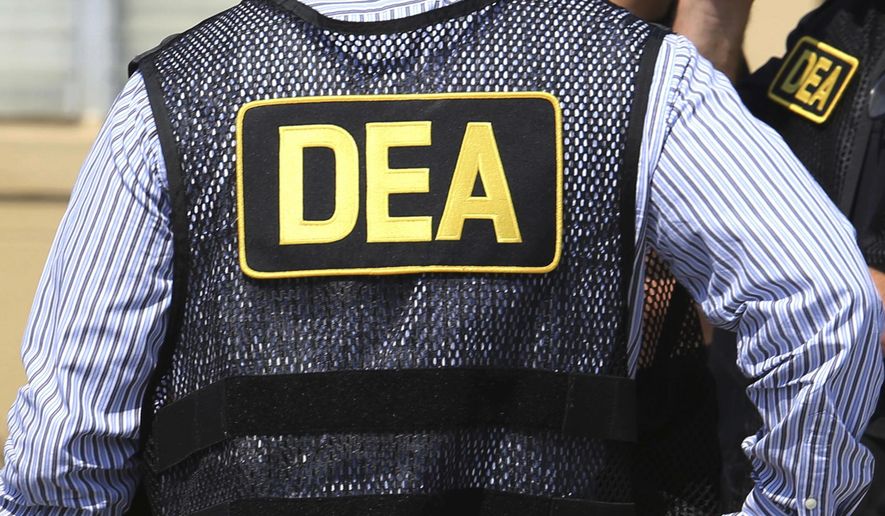ANALYSIS:
A current U.S. Drug Enforcement Administration agent and a former supervisor in the agency were charged Friday with leaking confidential law enforcement information to defense lawyers in Miami in exchange for $70,000 in cash.
A five-count indictment unsealed in New York charges the agent, John Costanzo Jr., with accepting bribes to provide sensitive information about pending investigations to Manny Recio, a former Miami supervisor who retired from DEA more than two years ago to work as a private investigator for area defense attorneys. Federal prosecutors allege Recio sought the information to help recruit new clients.
Using a burner phone that Recio purchased for Costanzo, the two men allegedly coordinated unlawful searches of criminal databases, helped DEA targets mislead federal investigators and concealed payments made with the knowledge of the suspects’ defense attorneys.
Proceeds for the scheme were allegedly used by Costanzo to repair his Porsche, purchase airline tickets and make a $50,000 down payment on a condominium.
“Make it look good. This is thirty grand right here,” Recio told Costanzo in a 2019 recorded phone call in which the two discussed a draft submission to prosecutors on behalf of one target, according to court documents.
An attorney for Recio did not immediately respond to requests for comment. Costanzo’s attorney, Marc L. Mukasey, said in an email that “the theory of this case is misguided and he will be vindicated.”
The charges are the latest black eye for the DEA, which has been beset by repeated misconduct scandals that have landed a growing list of former agents behind bars. Just last week, another former DEA agent in Arkansas was sentenced to more than 11 years in prison for taking thousands of dollars in bribes from a drug trafficker.
The case has also sent a chill through South Florida’s close-knit, fiercely competitive narco-defense circles because of Recio’s strong ties to federal law enforcement and the high-paid, private-sector lawyers.
“The conduct alleged in the indictment violates the core duty of law enforcement officers to protect and serve the public, rather than to use their access to sensitive information to enrich themselves,” Manhattan U.S. Attorney Damian Williams said in a statement.
In interviews with FBI agents in 2019, Costanzo and Recio both denied ever exchanging anything of value as part of the alleged scheme. Such actions would have been a flagrant violation of the DEA’s standards of conduct.
The charges stemmed from a long-running federal investigation by the FBI and the U.S. Attorney’s Office for the Southern District of New York, which more than two years ago took the unusual step of wiretapping Recio as part of an inquiry into the flow of information between the DEA and Miami lawyers representing narcotraffickers and money launderers from Colombia.
The FBI wiretapped Recio for at least three months while he worked in his post-retirement job as a private investigator for defense lawyers.
As part of the shady dealings, he at one point wrote a $2,500 check to a company co-owned by an unnamed member of Costanzo’s family, according to court documents. The payment appears to have been used by Costanzo to repair a Porsche he owned, according to an email exchange about the vehicle between the DEA agent and an unnamed defense attorney from the tony Miami suburb of Coral Gables with whom Recio was working with as a private investigator.
In 2019, the same family member received $50,000 from a company owned by a local Florida police detective who also isn’t named. The funds were used by Costanzo for a down payment on a condominium, according to the indictment.
In addition to running database checks, Costanzo allegedly assisted Recio in his work with another Miami-area attorney representing a charged defendant. When prosecutors learned that the defendant had deleted information from his cell phone, Costanzo allegedly suggested that he mislead investigators by falsely claiming that he had deleted the information because he didn’t want the government to see naked photos of his wife.
Recio’s defense attorney, Phil Reizenstein, previously told AP that Recio’s work on cases had been “impeccable.”
“I have no concerns that he did anything that was close to being illegal,” Reizenstein said at the time. “He has held himself to the highest standards and the same law-abiding ideals in his private work.”
Recio finished his more than two decades with the DEA as an assistant special agent in charge of the agency’s Miami field division, specializing in cases involving illicit finances. Immediately after retiring, he launched a Miami-based business called Global Legal Consulting, which according to its website provides private investigations, anti-money laundering solutions and other legal services.
Recio once supervised highly-sensitive money laundering investigations involving Jose Irizarry, a former standout DEA agent in the Miami office who was sentenced in December to more than 12 years in federal prison for conspiring to launder money with a Colombian cartel and using his badge to build a lavish lifestyle of expensive cars, parties on yachts and Tiffany jewelry. Before being locked away, Irizarry blamed the DEA for fostering a culture of corruption and gift taking that he said desensitized him to the implications of violating the law.
The DEA said in a statement that its agents “are responsible for protecting the safety and health of the communities we serve and upholding the rule of law. Conduct that is inconsistent with that responsibility will not be tolerated.”




Please read our comment policy before commenting.